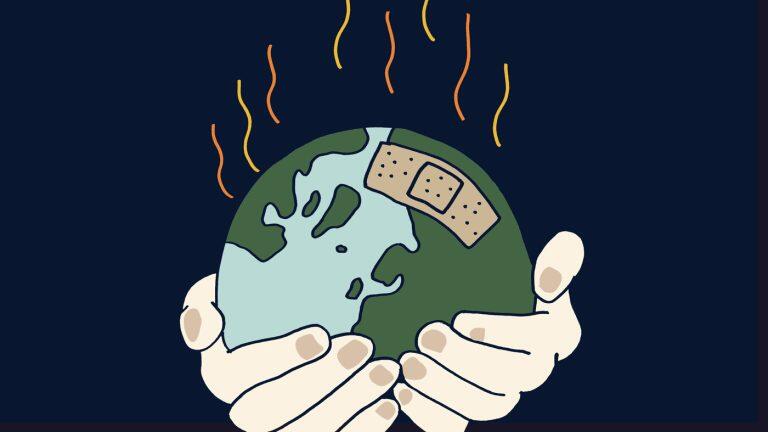Should we sacrifice health for the climate?
Healthcare is a place of healing, but as a major polluter it is also a source of harm. In this public science lecture, BCEPS PhD candidates Anand Bhopal and Emily McLean discussed the feasibility, responsibility and ultimate desirability of healthcare decarbonisation.

Hovedinnhold
The recent COP26 climate conference in Glasgow had, for the first time, a dedicated health programme and Norway is one of 14 countries which committed to developing a ‘net zero’ health system by 2050. In this evening public science event, held on 19 January 2022 and organised by Selskapet til Vitenskapenes Fremme in conjunction with the Bergen Student Society, Anand Bhopal (PhD Candidate, BCEPS) delivered a key note lecture, framing healthcare decarbonisation in relation to the wider climate discourse, exploring the responsibility of emitters and fair pathways to ‘net zero’.
The lecture focused on the idea of sacrifice, drawing upon his own experience working as a junior doctor in a economically deprived area of Glasgow as well as his research on priority setting to go beyond cost-effectiveness. Drawing upon the experience of COVID-19, he considered sacrifice not only as a cost - nor bloodshed and lives lost – but as change: “To change what you do. To change how you do it. It is a willingness to listen. To act. Not to act. To sacrifice is to empathise.”
Following the lecture Anand was in conversation with Emily McLean (PhD Candidate, BCEPS) where they focused in on healthcare decarbonisation in Norway. They discuss the origin of the Grønt Helsevesen project which they lead, shared their experiences of engaging with different stakeholders behind the scenes and engaged in questions from a live audience.
The lecture was not recorded but the manuscript can be read here.
Should we sacrifice health for the climate?


